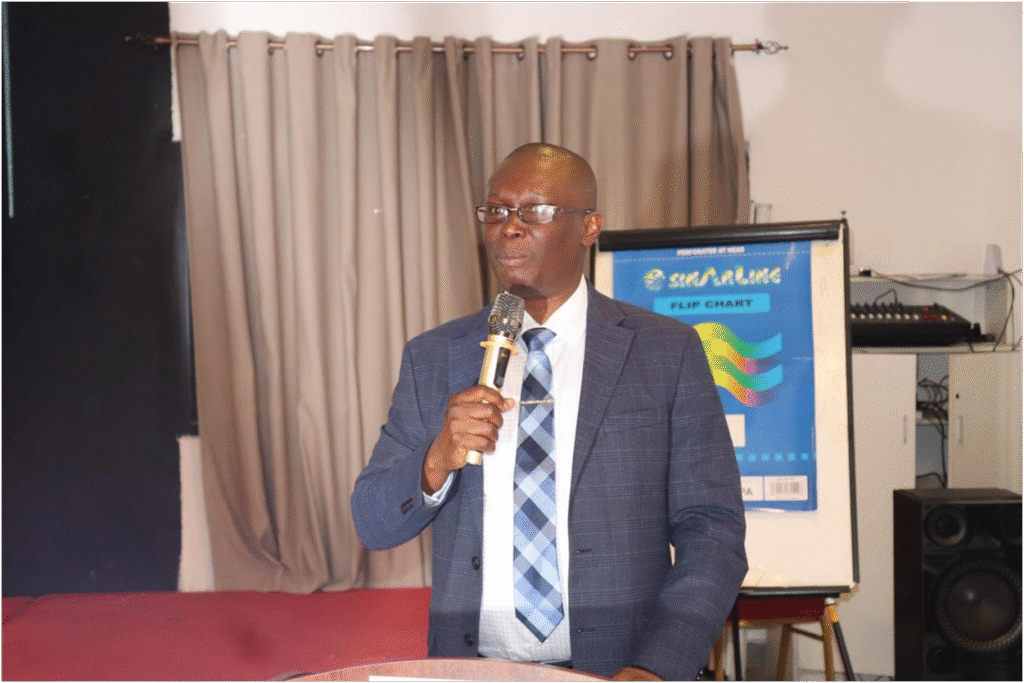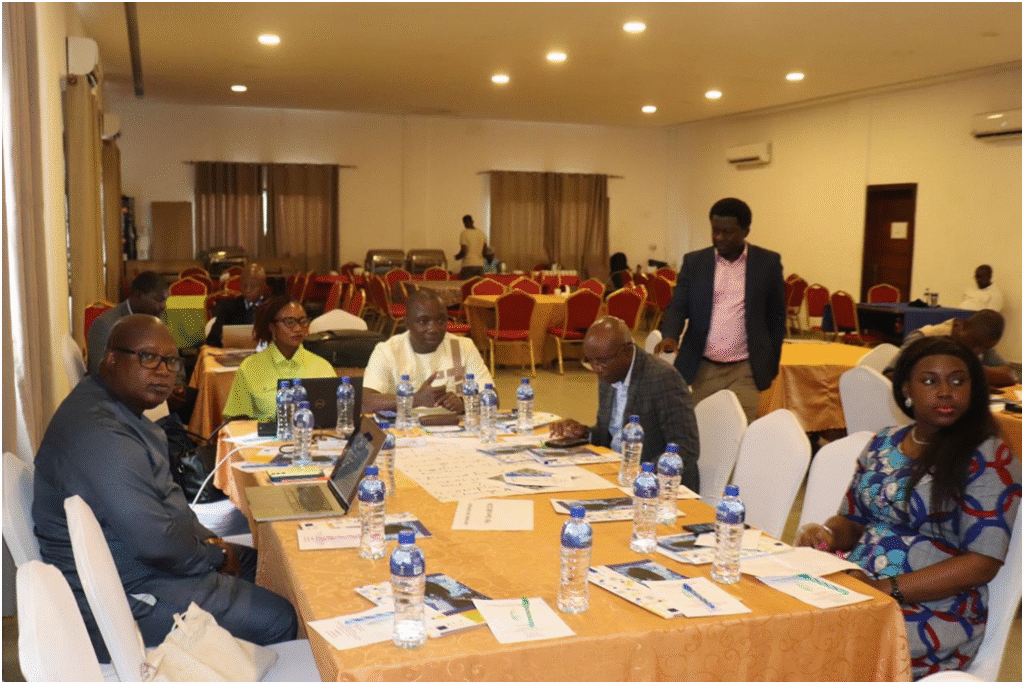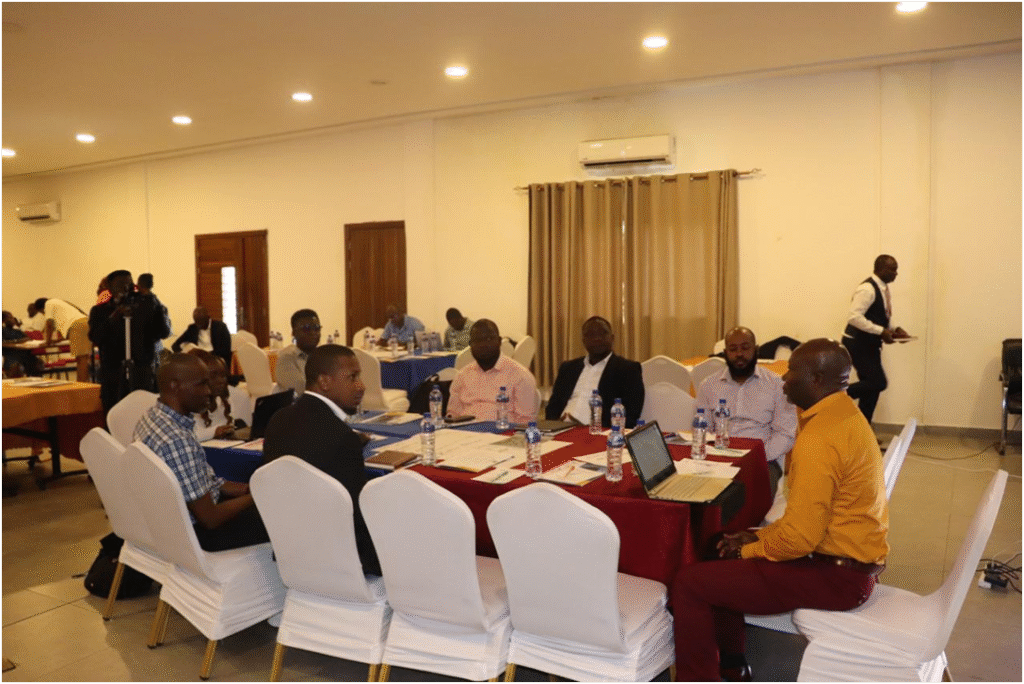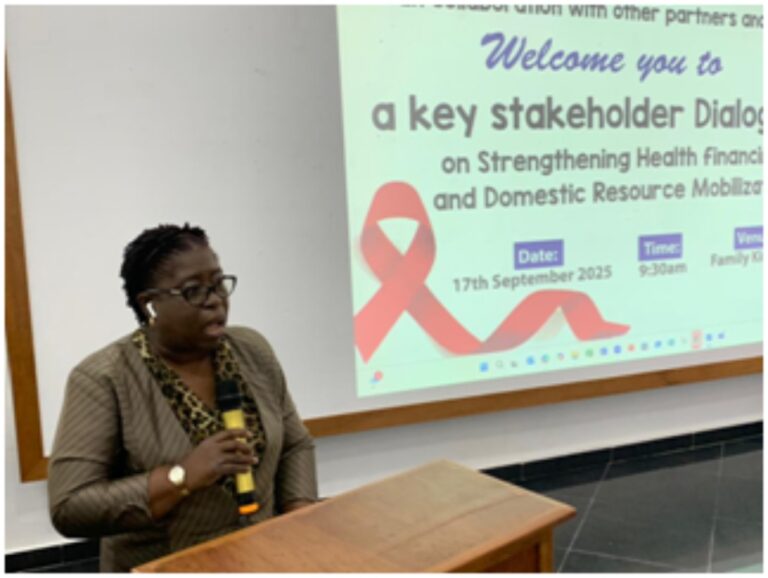The Ministry of Finance, through the Directorate of Financial Management Systems and Technology (DFMST), held a two-day stakeholders’ workshop on the development of a roadmap for the Public Financial Management (PFM) Interoperability framework for Sierra Leone on July 23rd and 24th, 2025, at the Sierra Palms Hotel in Freetown.
This exercise attracts senior and technical staff from several government Ministries, departments, and Agencies dealing with public finance and technology, as well as development partner organisations.

In his statement, the Director of DFMST at the Ministry of Finance, Dr Simeon Jonjo, stated that although the Government of Sierra Leone has significantly invested in various technological initiatives and interventions over the last decade in developing and deploying several mission-critical systems to automate processes, improve productivity, and deliver services more efficiently and cost-effectively, most of these systems across the government operate independently and do not interconnect or interoperate.

This is why he said the Ministry of Finance has adopted a consolidated interagency approach to Systems Interoperability to support effective data warehousing, analytics, business intelligence, and decision-making.
He further stated that the system is programmed to operate within specific terms of reference that are independent of the daily operations of various institutions and will also grant enough authority and capacity to the government to implement a government Interoperability Roadmap within the Sierra Leonean public service.
Dr Jonjo informed his audience that this programme will improve efficiency, save costs, increase transparency and accountability, and enhance collaboration and service delivery.

The Financial Secretary, Matthew Dingie, in his statement, thanked the World Bank through the Sierra Leone Second Financial Inclusion project for their funding support to this initiative.
He noted that several government systems from the Ministry of Finance, the Accountant General, National Public Procurement Authority, the Audit Service, the Bank of Sierra Leone, Nassit, NCRA, etc, that depend on each other for information but bcause they are independent of each other, they rely on a manual process of data sharing, which makes data quality challenging.

The Financial Secretary calls on participants to look at the technical, legal, and policy issues that are bottlenecks for interoperability to be achieved among PFM systems.
The lead consultant and CEO of PCL International, Oluwale Pratt, stated that this PFM interoperability roadmap framework will serve as the strategic policy governance blueprint for the Government Service Bus.

He noted that this exercise aims to make PFM systems interoperable, not the overall government systems.
During the two days, officials from other MDAs shared their institutional interventions in implementing systems-critical mission reforms and how they can contribute to making PFM systems interoperable.
©️MOF Communications







